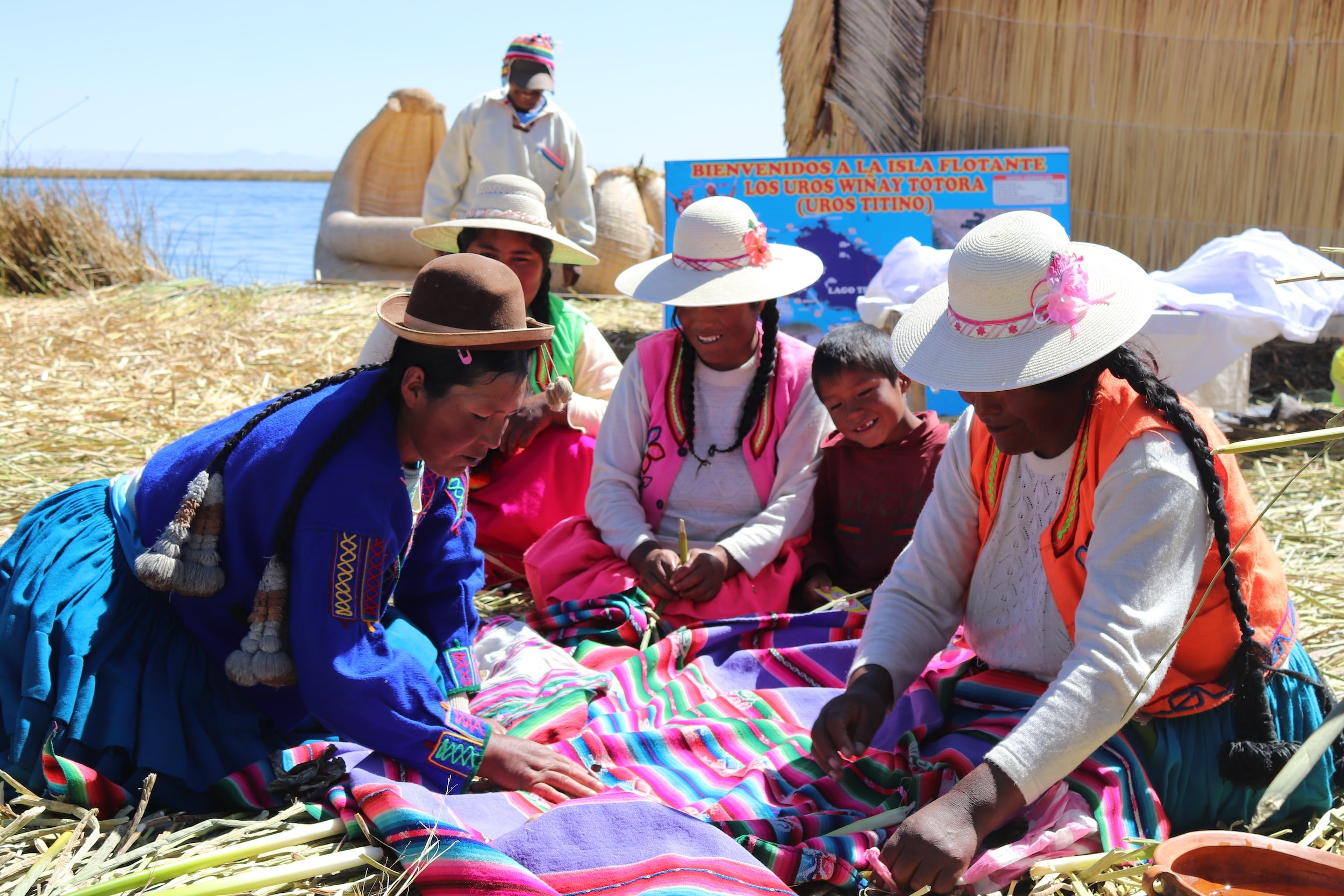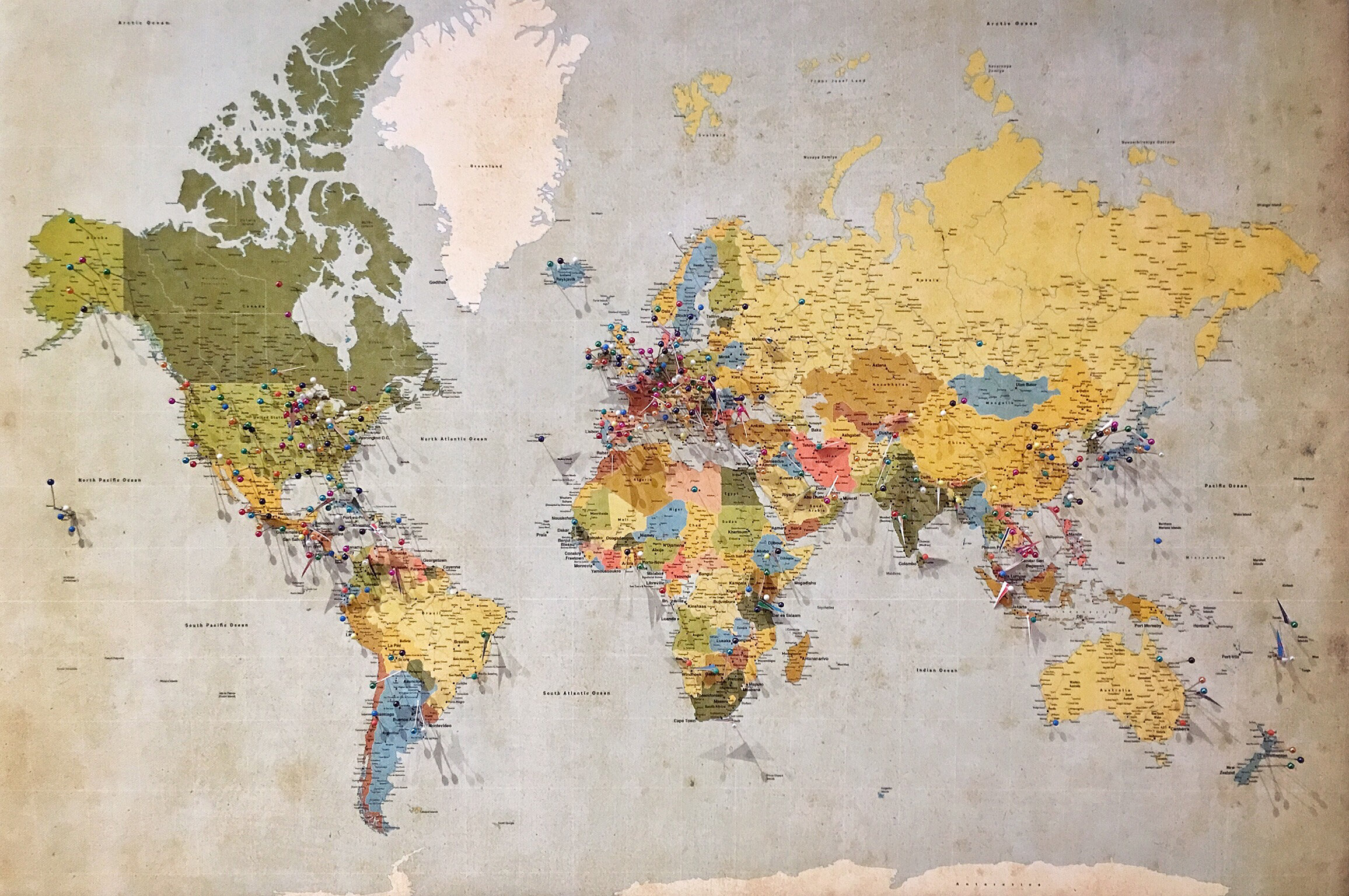Ethical Dilemmas and Fair Practices in International Research
The Methodspace focus for August 2022 is on research ethics. While following the guidelines and protocols from your institution can be challenging, the dilemmas multiply when you conduct international research.
Find guidance in the Global Code of Conduct for Research in Resource-Poor Settings (2018) which is a mandatory reference document for Horizon Europe and now used in over 50 lower income countries, and in Equitable Research Partnerships: A Global Code of Conduct to Counter Ethics Dumping, which you can download free in PDF or EPub formats. See a recorded webinar and additional resources here: Equitable Research Partnerships.
This collection of open-access articles provides examples for addressing ethical research in international studies.
Araali, B. B. (2011). Perceptions of Research Assistants on How Their Research Participants View Informed Consent and Its Documentation in Africa. Research Ethics, 7(2), 39–50. https://doi.org/10.1177/174701611100700203
Abstract. This paper discusses the issue of informed consent from an African perspective with a particular emphasis on the problems posed by the documentation of consent in the African socio-cultural environment. The paper presents two small-scale surveys which typify and exemplify the African perspective with regard to procedures for obtaining consent (agreement) and for documenting it. To avoid causing moral pain to African research participants and the feeling of having been used as mere sources of data, this paper suggests, as a shortterm solution, that African cultural values be incorporated in the procedures and regulations aimed at protecting their human rights. As a long-term solution, the paper encourages universities and research institutions operating in Africa to come up with clear guidelines of ethical conduct which would satisfy both the interests of ordinary Africans (particularly the rural and uneducated population) and legal requirements to which Western research institutions and funding agencies are subjected.
Bamdad, S., Finaughty, D. A., & Johns, S. E. (2022). ‘Grey areas’: ethical challenges posed by social media-enabled recruitment and online data collection in cross-border, social science research. Research Ethics, 18(1), 24–38. https://doi.org/10.1177/17470161211045557
Abstract. Are social science, cross-border research projects, where recruitment and data collection are carried out remotely (e.g. through social media and online platforms), required to follow similar ethical and data-sharing procedures as ‘on-the-ground’ studies that use traditional means of recruitment and participant engagement? This article reflects on our experience of dealing with this question when we (multi-national but UK based researchers) had to switch to online data collection due to the restrictions posed by the COVID-19 pandemic, such as the inability to travel or work in person with local communities and collaborators. Using social media platforms and online data collection when conducting research brings many advantages, such as being able to communicate remotely but directly with gatekeepers and collaborators, and in reaching potential participants on a global scale. However, neither the guidelines and advice for conducting ethically sound internet-based research, nor the academic literature focussed on building equitable research partnerships between the Global North and the Global South, offer much information regarding the ethical concerns, or address the grey areas, posed by this type of digital and distanced transnational research. In our experience, conducting research remotely made negotiations of access very challenging due to the politics of positionality between Global North and South researchers, lack of clarity on ethical processes and (mis)perceptions of gatekeepers who we could not meet in person. We hope the reflections on, and discussion of, our experience encourage deliberation on the present ethical challenges posed by online and social-media-disseminated data collection, particularly in cross-border circumstances.
Brelsford, K. M., Ruiz, E., & Beskow, L. (2018). Developing informed consent materials for non-English-speaking participants: An analysis of four professional firm translations from English to Spanish. Clinical Trials, 15(6), 557–566. https://doi.org/10.1177/1740774518801591
Abstract. An increasing body of research is being conducted with non-English-speaking subjects. Study-related materials, including those essential for obtaining informed consent, must often be translated from English into other languages. In this study, we sought to examine the types of issues that may arise when consent materials are translated from English to Spanish. Drawing on expertise from five individuals associated with our research team, four of whom are native Spanish speakers of different dialects of Spanish, we crafted translations of our own consent materials for biobanking using a rigorous, multi-step process involving both forward and back translation. We then systematically compared our translations to those produced by four professional translation firms to identify potential concerns in our own and the professional translations.
Dove, E. S., & Garattini, C. (2018). Expert perspectives on ethics review of international data-intensive research: Working towards mutual recognition. Research Ethics, 14(1), 1–25. https://doi.org/10.1177/1747016117711972
Abstract. Life sciences research is increasingly international and data-intensive. Researchers work in multi-jurisdictional teams or formally established research consortia to exchange data and conduct research using computation of multiple sources and volumes of data at multiple sites and through multiple pathways. Despite the internationalization and data intensification of research, the same ethics review process as applies to single-site studies in one country tends to apply to multi-site studies in multiple countries. Because of the standard requirement for multi-jurisdictional or multi-site ethics review, international research projects are subjected to multiple ethics reviews of the same research protocol. Consequently, the reviews may be redundant and resource-consuming, whilst the opinions delivered by ethics committees may be inconsistent both within and across jurisdictions. In this article, we present findings based on interviews conducted with international experts in research ethics on the topic of ethics review mutual recognition. We explore the issues associated with ethics committee review of multi-jurisdictional data-intensive research projects, identifying current problems, real-life experiences, and potential solutions that are both bottom-up (via researchers, participants and publics) and top-down (via statutory regulation), as well as challenges in achieving both. On the whole, participants recommended multiple changes to the current ethics review regime for data-intensive international research with the aim of reducing inefficiency and inconsistency. But, the changes recommended differ in terms of degree and scope. In general, participants stressed that key drivers of success in a reformed system should be strong leadership (on the ground and in government) and demonstration of value.
Maduka-Okafor, F. C., Okoye, O. I., Oguego, N., Udeh, N., Aghaji, A., Okoye, O., Ezegwui, I. R., Nwobi, E. A., Ezugwu, E., Onwasigwe, E., Umeh, R. E., & Aneji, C. (2022). Recruiting pupils for a school-based eye study in Nigeria: Trust and informed consent concerns. Research Ethics, 18(1), 13–23. https://doi.org/10.1177/17470161211045772
Abstract. School-based research presents ethical challenges, especially with respect to informed consent. The manner in which pupils and their parents respond to an invitation to participate in research is likely to depend on several factors, including the level of trust between them and the researchers. This paper describes our recruitment and consent process for a school-based eye study in Nigeria. In the course of our study, a particular governmental incident helped to fuel public mistrust in governmental programs and posed a potential threat to our recruitment efforts. The recruitment and consent process included series of advocacy visits to stakeholders in the education sector, highly interactive briefing and health talk sessions in schools, use of telephone services as a medium for information dissemination, age-appropriate study information, parental consent, and pupil assent. Of the 6598 pupils provided with study information, 5723 returned parental consent forms. There were 69 cases of pupils who dissented despite having parental consent. The two leading concerns for the parents/guardians were the rumors regarding a military/governmental-sponsored health campaign and the side-effects of the dilating eye-drops. Nevertheless, our high level of recruitment suggests our recruitment and consent process was successful in assuaging fears for the vast majority of pupils and their parents.
Crivello, G., & Favara, M. (2021). COVID-19 and the ‘ethics of disruption’: Current dilemmas facing longitudinal research in low- and middle-income countries. Methodological Innovations, 14(1). https://doi.org/10.1177/2059799121994223
Abstract. In this piece, we draw on recent experiences from the Young Lives study to discuss some of the ethical and practical challenges facing longitudinal cohort studies in low- and middle-income countries in the time of coronavirus. We argue that COVID-19 has instigated an ‘ethics of disruption’ for social researchers across the world, and for longitudinal cohort studies like Young Lives, this requires navigating three core considerations: first, managing research relationships and reciprocity within an observational study design; second, maintaining methodological continuity and consistency across time; and third, balancing an immediate short-term response to COVID-19 against the long-term perspective. We refer to the study’s plan to implement a new COVID-19 phone survey to illustrate how the team are navigating this altered ethical terrain.
Dove, E. S., & Garattini, C. (2018). Expert perspectives on ethics review of international data-intensive research: Working towards mutual recognition. Research Ethics, 14(1), 1–25. https://doi.org/10.1177/1747016117711972
Abstract. Life sciences research is increasingly international and data-intensive. Researchers work in multi-jurisdictional teams or formally established research consortia to exchange data and conduct research using computation of multiple sources and volumes of data at multiple sites and through multiple pathways. Despite the internationalization and data intensification of research, the same ethics review process as applies to single-site studies in one country tends to apply to multi-site studies in multiple countries. Because of the standard requirement for multi-jurisdictional or multi-site ethics review, international research projects are subjected to multiple ethics reviews of the same research protocol. Consequently, the reviews may be redundant and resource-consuming, whilst the opinions delivered by ethics committees may be inconsistent both within and across jurisdictions. In this article, we present findings based on interviews conducted with international experts in research ethics on the topic of ethics review mutual recognition. We explore the issues associated with ethics committee review of multi-jurisdictional data-intensive research projects, identifying current problems, real-life experiences, and potential solutions that are both bottom-up (via researchers, participants and publics) and top-down (via statutory regulation), as well as challenges in achieving both. On the whole, participants recommended multiple changes to the current ethics review regime for data-intensive international research with the aim of reducing inefficiency and inconsistency. But, the changes recommended differ in terms of degree and scope. In general, participants stressed that key drivers of success in a reformed system should be strong leadership (on the ground and in government) and demonstration of value.
Jao, I., Kombe, F., Mwalukore, S., Bull, S., Parker, M., Kamuya, D., Molyneux, S., & Marsh, V. (2015). Involving Research Stakeholders in Developing Policy on Sharing Public Health Research Data in Kenya: Views on Fair Process for Informed Consent, Access Oversight, and Community Engagement. Journal of Empirical Research on Human Research Ethics, 10(3), 264–277. https://doi.org/10.1177/1556264615592385
Abstract. Increased global sharing of public health research data has potential to advance scientific progress but may present challenges to the interests of research stakeholders, particularly in low-to-middle income countries. Policies for data sharing should be responsive to public views, but there is little evidence of the systematic study of these from low-income countries. This qualitative study explored views on fair data-sharing processes among 60 stakeholders in Kenya with varying research experience, using a deliberative approach. Stakeholders’ attitudes were informed by perceptions of benefit and concerns for research data sharing, including risks of stigmatization, loss of privacy, and undermining scientific careers and validity, reported in detail elsewhere. In this article, we discuss institutional trust-building processes seen as central to perceptions of fairness in sharing research data in this setting, including forms of community involvement, individual prior awareness and agreement to data sharing, independence and accountability of governance mechanisms, and operating under a national framework.
Mapedzahama, V., & Dune, T. (2017). A Clash of Paradigms? Ethnography and Ethics Approval. SAGE Open. https://doi.org/10.1177/2158244017697167
Abstract. Obtaining ethics approval from university ethics committees is an important part of the research process in Australia and internationally. However, for researchers engaging in ethnographic work, obtaining ethics approval can (re)present significant hurdles to overcome in planning and facilitating a research project. In this article, we discuss potential challenges of reconciling the differences between institutional ethical review standards and the reality of ethnographic research. To do so, we reflect on our own experiences seeking ethics approval for a study on racialized visibility in rural nursing and another on the experiences of gender and sexuality diverse older women. We focus on two particular queries from ethics committees that reaffirm, for us, the incompatibility of biomedically informed ethics guidelines for naturalistic, ethnographic research. The article draws on four major points of contention regarding ethical approval processes designed for biomedical research and applied to social research. With respect to social research, these are (a) the associated risks, (b) predictive informed consent, (c) the power held by social researchers, and (d) biomedical emphasis on distance and universalism within the research relationship. This article suggests a reformulation of ethics guidelines and structures such that ethics committees are better able to engage with ethnographic (and other social) research. Although these debates and structural changes may not be relevant for all social or ethnographic research, exploring these ethical difficulties is paramount to redefining expectations and the positivist standards upon which social research is often measured.
Morris, N. (2015). Providing ethical guidance for collaborative research in developing countries. Research Ethics, 11(4), 211–235. https://doi.org/10.1177/1747016115586759
Abstract. Experience has shown that the application of ethical guidelines developed for research in developed countries to research in developing countries can be, and often is, impractical and raises a number of contentious issues. Various attempts have been made to provide guidelines more appropriate to the developing world context; however, to date these efforts have been dominated by the fields of bioscience, medical research and nutrition. There is very little advice available for those seeking to undertake collaborative social science or natural science research in developing countries and what is there tends to be held within disparate sources. Charting the development of a set of ethics documentation for future use by the Ecosystem Services for Poverty Alleviation (ESPA) programme research community, this paper outlines past and present attitudes towards ethics procedures amongst this community and suggests ways in which ethics procedures might be made more relevant and user-friendly to researchers working in this area.
























Informed consent is the term given to the agreement between researcher and participant. In this post Janet Salmons offers suggestions about the intersections of the Internet communications, ethics and participants.